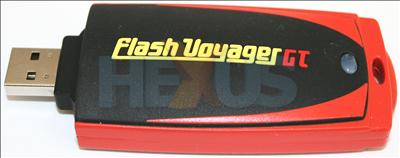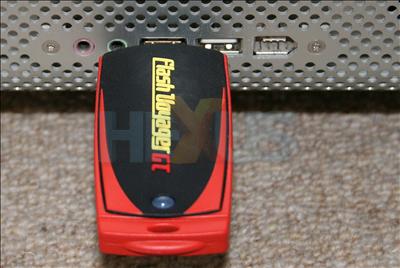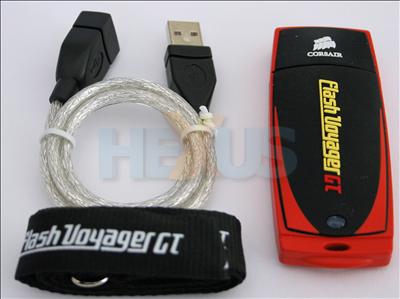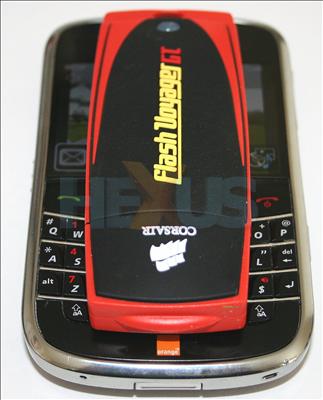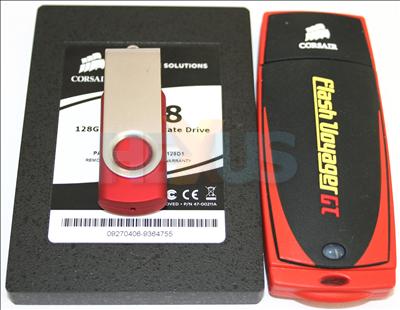Make mine a venti
The Flash Voyager GT 128 is presented in the now-familiar livery of the GT pen-drives. The ruggerdised casing is thicker than smaller-capacity drives'. A blue LED flashes when the drive's being accessed by the host system.
Corsair uses a dual-controller design to maximise the speed of the MLC NAND memory contained inside, and the company quotes peak read/write speeds of 32.6MB/s and 28MB/s, respectively. That, then, makes it one of the faster USB pen-drives available.
Cramming 128GBs of NAND and a high-performance controller means that the GT 128 is never going to be thin and sleek. In fact, it's very much the opposite, measuring 100mm x 40mm x 16mm (l x w x h) and weighing 62g, including cap. The sheer size of the drive can be guesstimated from how small the USB connector looks in comparison. In contrast, Patriot's Xporter Magnum, whilst not as fast, is considerably smaller, measuring 70mm x 27mm x 8mm and weighing just 22g.
Clearly opting for speed over form, we're somewhat bemused as to why Corsair hasn't included an eSATA version - or even a double-ended model. USB2.0 is limited to around 35MB/s in real-world use; eSATA can skip along at 250MB/s-plus, putting the onus on he drive, not the interface. We make particular mention of this fact because folk who can drop £300 on a removable drive will, we feel, have access to boards/chassis with eSATA ports.
The size of the drive blocks off an adjacent USB port.
And that's why the rudimentary bundle includes a lanyard and USB-extender cable.
Corsair backs the drive up with its limited lifetime warranty that, from our experience, is one of the best in the industry.
How big is it? It hides much of a BlackBerry Bold.
The reason for highlighting the size lies with picture, above. A cheap-as-chips 2GB pen-drive is shown on top of a Corsair X128 performance-oriented SSD. The Flash Voyager GT 128, including cap, is just as long and over half as wide as the SSD, which is a fundamentally faster storage medium. Attach it to an eSATA caddy, power it via USB cables and it represents a real alternative to a 128GB pen-drive. Indeed, the bare drive costs the same - some £300 - and Crucial's CT128M225, ostensibly the same SSD, is available for £220.
Corsair's decision to debut a fast pen-drive is manifested in a much larger-than-normal model which, we reckon, brings eSATA-connected, caddy-housed SSDs very much into play as a viable alternative for on-the-go storage.
Let's bust out some benchmarks, including a USB-connected 160GB 2.5in drive, before we give a verdict.








